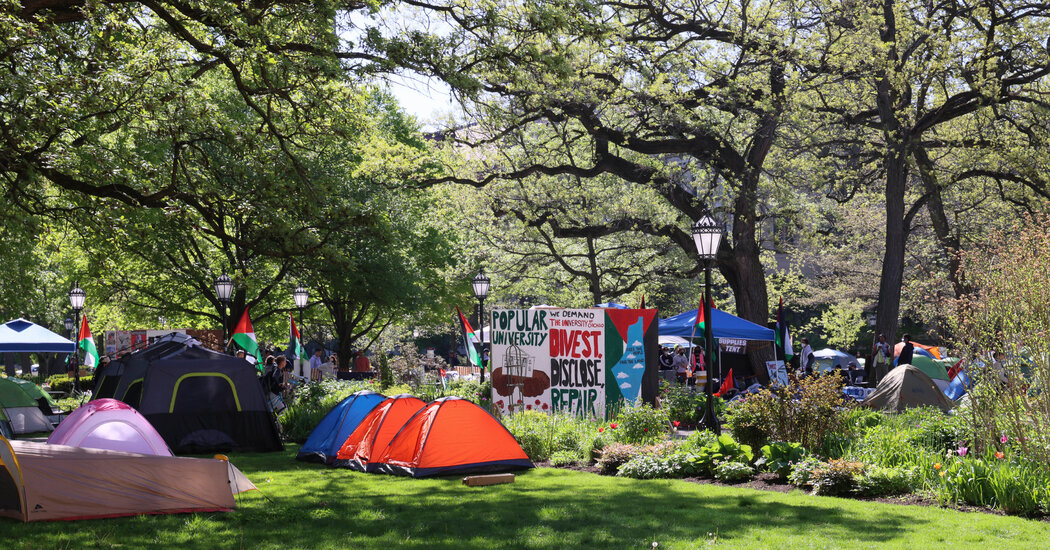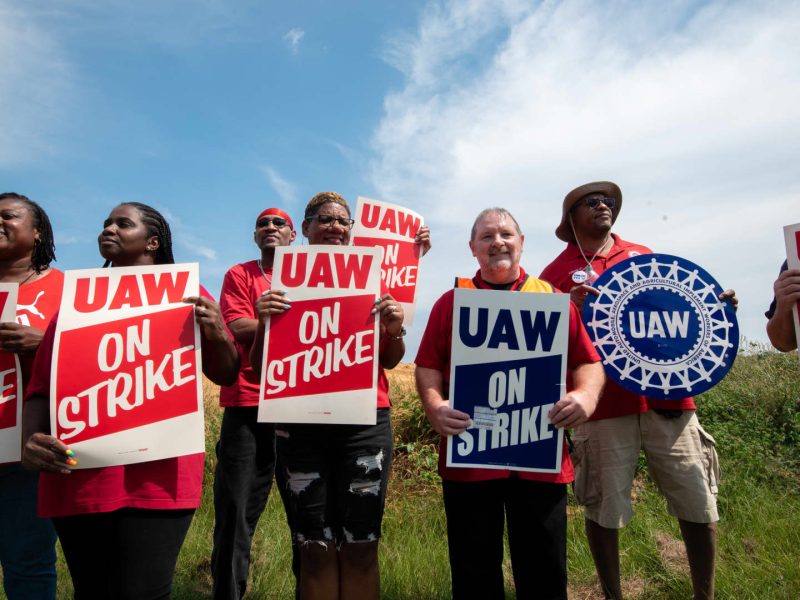The president of the University of Chicago said on Friday that the pro-Palestinian encampment on his campus’s quad “cannot continue,” a position that was being closely watched in higher education because the university has long held itself up as a national model for free expression.
Administrators had initially taken a permissive approach to the camp and pointed toward what is known as the Chicago statement, a set of free speech standards adopted in 2015 that have become a touchstone and guide for colleges across the country. But President Paul Alivisatos said on Friday that those protections were not absolute, and that the encampment had run afoul of university policies.
“On Monday, I stated that we would only intervene if what might have been an exercise of free expression blocks the learning or expression of others or substantially disrupts the functioning or safety of the university,” Dr. Alivisatos said in a message to the campus. “Without an agreement to end the encampment, we have reached that point.”
In the hours after his announcement, hundreds of protesters remained at the encampment, where they chanted and held signs as counterprotesters gathered nearby. At one point, some pro-Palestinian demonstrators and counterprotesters briefly fought one another. By early afternoon, more police officers, both from the university and the city, were visible near the quad.
The scene had quieted down, at least temporarily, by early Friday evening. Several security guards were stationed around the quad, where protesters moved quietly around their encampment while others studied or walked nearby. There was no effort by law enforcement to forcibly disband the encampment.
Chicago’s mayor, Brandon Johnson, issued a statement saying he had been in touch with Dr. Alivisatos and had “made clear my commitment to free speech and safety on college campuses.”
Like at dozens of colleges across the country, Chicago students have erected tents on campus and issued a set of demands to administrators, including divesting from weapons manufacturers. A member of a group leading the encampment, UChicago United for Palestine, accused the university of “negotiating in bad faith” in a statement on Friday.
The protest group “refuses to accept President Alivisatos’s repeated condescending offer of a public forum to discuss ‘diverse viewpoints’ on the genocide, as this is clearly a poor attempt at saving face without material change,” said Christopher Iacovetti, a student who participated in negotiations.
Dr. Alivisatos, a chemist who became president of the university in 2021, said in his message to campus that the encampment had become far more than a cluster of tents. He accused protesters of vandalizing buildings, blocking walkways, destroying a nearby installation of Israeli flags and flying a Palestinian flag from a university flagpole.
“The encampment has created systematic disruption of campus,” Dr. Alivisatos said. “Protesters are monopolizing areas of the Main Quad at the expense of other members of our community. Clear violations of policies have only increased.”
The University of Chicago, a private college that is one of the country’s most selective, has been praised by conservatives and free speech advocates in recent years for its approach to expression on its campus.
As part of its free speech philosophy, the university also put forward the principle of institutional neutrality.
In a 1967 declaration, the university called for schools to remain neutral on political and social matters, saying a campus “is the home and sponsor of critics; it is not itself the critic.” But at other colleges, students over the years have frequently and successfully pressed their administrations to take positions on matters like police brutality and global warming.
In August 2016, the University of Chicago informed incoming freshmen: “We do not support so-called trigger warnings, we do not cancel invited speakers because their topics might prove controversial, and we do not condone the creation of intellectual safe spaces where individuals can retreat from ideas and perspectives at odds with their own.”
Versions of the university’s declaration of free speech principles have been adopted by dozens of other colleges in recent years.
“In a word, the university’s fundamental commitment is to the principle that debate or deliberation may not be suppressed because the ideas put forth are thought by some or even by most members of the university community to be offensive, unwise, immoral or wrong-headed,” that declaration said.
But the statement also describes clear limits, including a right to prohibit illegal activities and speech “that constitutes a genuine threat or harassment.”



